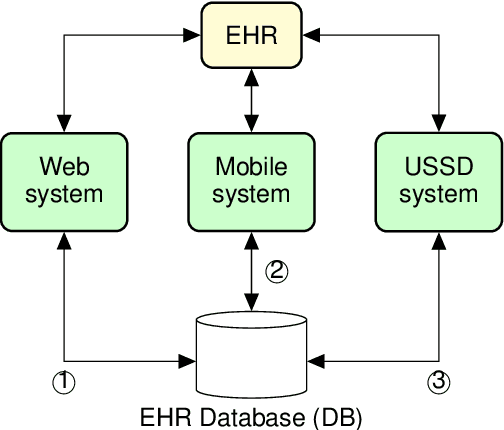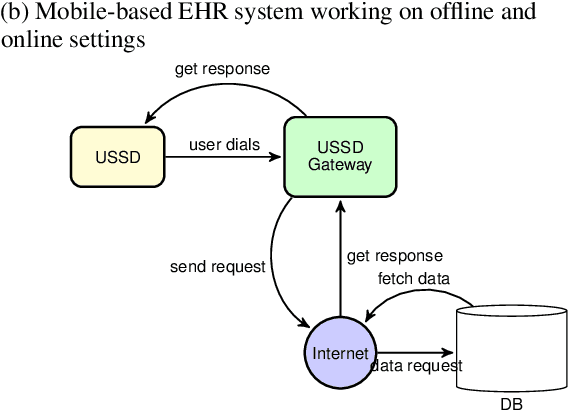Redesigning Electronic Health Record Systems to Support Developing Countries
Paper and Code
Jan 31, 2023

Electronic Health Record (EHR) has become an essential tool in the healthcare ecosystem, providing authorized clinicians with patients' health-related information for better treatment. While most developed countries are taking advantage of EHRs to improve their healthcare system, it remains challenging in developing countries to support clinical decision-making and public health using a computerized patient healthcare information system. This paper proposes a novel EHR architecture suitable for developing countries--an architecture that fosters inclusion and provides solutions tailored to all social classes and socioeconomic statuses. Our architecture foresees an internet-free (offline) solution to allow medical transactions between healthcare organizations, and the storage of EHRs in geographically underserved and rural areas. Moreover, we discuss how artificial intelligence can leverage anonymous health-related information to enable better public health policy and surveillance.
 Add to Chrome
Add to Chrome Add to Firefox
Add to Firefox Add to Edge
Add to Edge